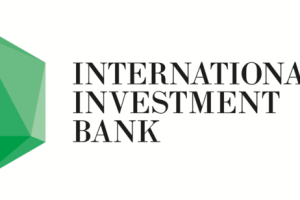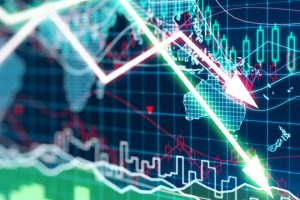Alătură-te comunității noastre!
Vezi cele mai recente știri & informații din piața de capital

There’s still some bubble to deflate on the U.S. stock market, while inflation is far from being under control in many parts of the world. High interest rates didn’t yet manage to tame rising prices, rather putting pressure on borrowers.
There’s more and more talk about an inevitable depression ahead, with terms like “polycrisis” trending in public discourse.
“Dr. Doom” itself, none other than the New York University professor Nouriel Roubini, says that the world faces the “mother of all debt meltdowns”.
In his most recent book “Megathreats”, the economist who predicted the 2008 crash warns of disturbingly plausible calamities, from climate to currency and debt crises.
Also, Roubini takes a dismal view of the impact of artificial intelligence, which is already leading to dangerous concentrations of corporate power.
In his view, this is widening social inequalities and the spread of disinformation that undermines democratic politics. In his turn, former U.S. Treasury Secretary Larry Summers says the world faces the “most complex, disparate and cross-cutting set of challenges” he’s ever encountered.
Also talking about polycrisis, the economic historian Adam Tooze argues, in a series of blog posts on the issue, that it’s important to understand the “crisis logics” and “systemic interconnection” of current threats to stability.
“A polycrisis is not just a situation where you face multiple crises” writes Tooze, it is rather a situation “where the whole is even more dangerous than the sum of the parts”.
On the geopolitical side, there are more than a few analysts who refer to the US – China relations as decisive for how the new world order unfolds.
Take Ray Dalio, the billionaire founder of Bridgewater Associates, who examines the conditions under which dominant countries have historically ceded primacy to upstart nations.
He says that an excessive accumulation of debt, a loss of competitiveness, rising inequality and internal discord bring a great power to decline.
“Regarding the trade war I believe that we have pretty much seen the best trade agreement that we are going to see and that the risks of this war worsening are greater than the likelihood that it will improve”, says Dalio.
He also states that “we won’t see any treaty or tariff changes anytime soon as all trade negotiations are on hold until well after the U.S. presidential elections”.
The geopolitical strategist Peter Zeihan thinks that the U.S. is no longer interested in protecting global trade routes and that the Gulf withdrawal of American forces is making a regional conflict between Iran and Saudi Arabia more likely.
On the European front, Zeihan believes that Russia will fight Ukraine to the bitter end. Even more, the strategist predicts the invasion of the Baltic states and Poland by Russia’s Vladimir Putin.
Wether these predictions come true or not, investors face difficult economic times ahead. Still, the best investment opportunities invariably appear at times of crisis.









Vezi cele mai recente știri & informații din piața de capital